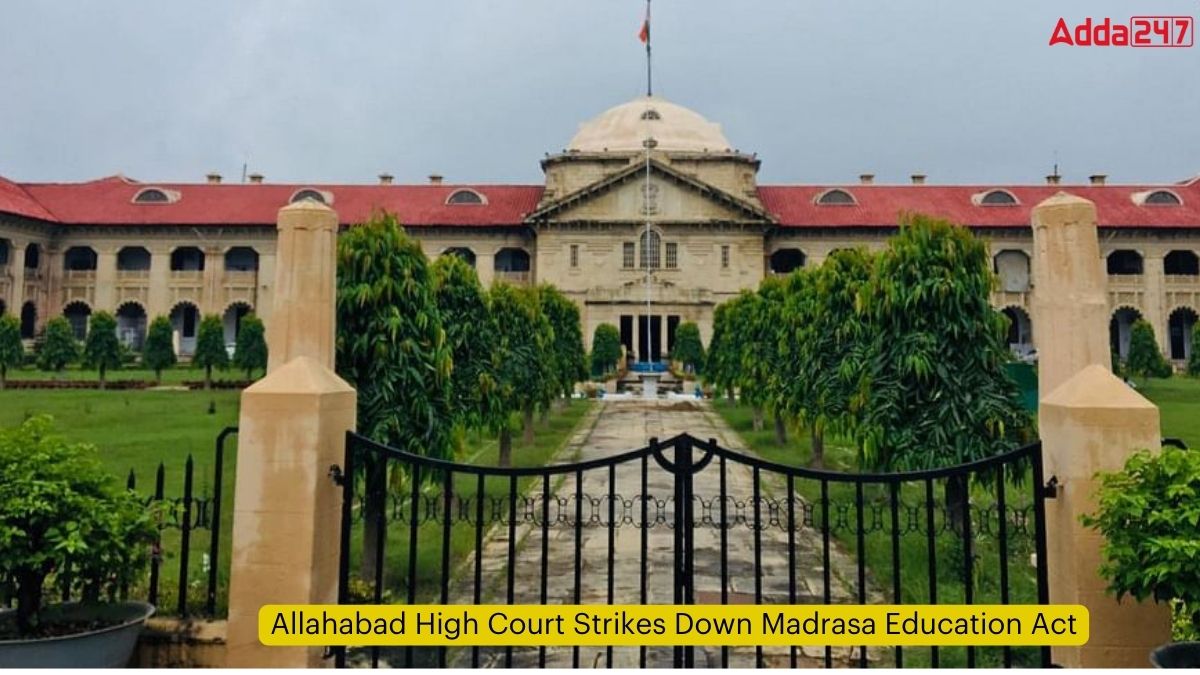The Allahabad High Court’s Lucknow bench has declared the UP Board of Madarsa Education Act of 2004 as unconstitutional. The court ruled that the act violated the principle of secularism, as well as several articles of the Constitution, including Articles 14, 21, and 21-A. Additionally, the court found that the act also contravened Section 22 of the University Grants Commission Act of 1956.
Directing Regular Education for Madrasa Students
The court has directed the Uttar Pradesh government to provide regular school education to students enrolled in madarsas (Islamic seminaries). The ruling states that these students should be accommodated in primary, high school, and intermediate education boards of the state.
Challenging the Unconstitutional Law
The judgment came in response to a plea filed by a lawyer who had challenged the constitutionality of the law passed by the state government. The law allowed madarsas to provide education in Arabic, Urdu, Persian, Islamic studies, and other branches without recognition by the state’s education boards.
Violation of Secularism and Constitutional Rights
The court found the law to be unconstitutional as it violated the principle of secularism, which is a part of the basic structure of the Constitution, as well as Articles 14, 15, and 21-A. The ruling will affect 16,513 madarsas in the state, of which 560 receive grants from the government.
Accommodating Madrasa Students
The court has asked the state government to create additional seats in regular schools for madrasa students and establish new schools if necessary. The state government is yet to decide whether to comply with the verdict or challenge it in the Supreme Court.
Concerns over Quality of Education
The court has found that the syllabus of Class 10 and 12 in madarsas is inconsistent with the Right to Education of the Constitution. Students have limited options to study modern subjects like maths and science, and the level of subjects like English and science is below the state board standards.
Conflict with UGC Act
The law was also found to be in conflict with the UGC Act, as previous rulings had established that higher education is a domain reserved for the Centre, and states lack the authority to create laws in this field.
The Allahabad High Court’s ruling aims to ensure that students enrolled in madarsas receive quality education aligned with the state’s educational standards and constitutional principles. The judgment highlights the importance of upholding secularism and providing equal educational opportunities to all students, regardless of their religious affiliations.




 Amit Shah Unveils Sardar Patel Statue in...
Amit Shah Unveils Sardar Patel Statue in...
 Devendra Fadnavis to Become Maharashtra ...
Devendra Fadnavis to Become Maharashtra ...
 International Gita Mahotsav 2024: Celebr...
International Gita Mahotsav 2024: Celebr...


